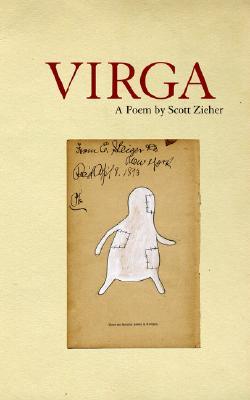Today, luggage underwrites our prevailing metaphor for dealing with poetry: critics and readers, weaned on the lyric, “unpack” poems which are supposed to be compact, manageable, and crammed to a bulge with meaning. Imagining poetry as a bag of meaning has undoubtedly contributed to the low profile kept by the contemporary long poem: difficult to write, too lengthy for casual memorization, pedagogically impractical to “unpack.” Lingering over a lyric is one thing, but several pages of a long poem can tire even the stouthearted. Nevertheless, the unwieldy long poem has a special attraction for poets, readers, and critics alike: it is an exercise in the sort of grand imagining reserved for novels and the best drama; also, long poems test the sustainability of a poet’s range and technique by requiring a poet render sequence as well as feeling. Regarded as an expression of established talent, young poets do not usually cut their teeth in the long poem genre (Yeats did). Scott Zieher’s long poem, Virga, is then doubly striking: both a compelling long poem and an exciting first volume of poetry.
According to the author, virga is a kind of rain that evaporates before hitting the ground. Fittingly, this poem—the first of several projected volumes—is a set of ethereal and hyperbolic vignettes, mostly about New York City. The poem calls these vignettes among other things, “attentions”: “Each attention is a little riddle to see by lamplight, also a jewel / And also a gem and sometimes our eleventh attention / Is trepidation and regret and empty pouting.”
“Attention” is appropriate because in Virga clarity happens then dissolves only to recur differently, alter, and so on. Zieher’s intricate evasions mimic the way one’s attentions may wander and settle in moving through an urban setting. Breaking off sense, changing topic, turning to a new object— for Zieher these comprise an expressive poetic method. The method aims to render meaning holistically. Some lines (“Notice delicacy’s demise / Soft on your lumbar squab”) have no firm sense out of the poem, but in the poem suggest ordinary stuff in city life (in this case, a car seat). An art dealer and skilled collagist, Zieher’s brilliance for spatial arrangement is on display throughout the poem, as is his subtlety with contrasts and verbal density. Virga seems especially indebted to the later parts of Ezra Pound’s magnum opus, The Cantos. But whereas Pound baroquely emulates musical form with recurrent motifs, shifts in language and accent, and dense allusion, Zieher aims for a strong visual element. Some of Virga’s most remarkable motifs are chromatic.
In this visual aspect, Zieher resembles an unusual suspect, indeed: Hart Crane—like Zieher, a Midwestern transplant to New York City (also the principle subject of Crane’s greatest poem). Throughout Virga, the effect of Crane’s dynamic vocabulary is clear, but ultimately Crane’s verse has a syntactical clarity for which Zieher does not aim. This refusal ultimately weakens Virga: certain passages are abstract melodrama: word puzzles and elegiac hyperboles of post-9/11 city life. The poem’s pseudohermetic numerology and solipsism, while enriching in places, also deepen the inadequacy of the weaker passages.
Finally, though, more is excellent than bromidic in Virga. If it is, in fact, a series, as it is written we will likely witness Zieher develop into a formidable poet. Already Virga represents an exciting direction for the long poem and confirms the genre will be an ongoing site of compelling work.





